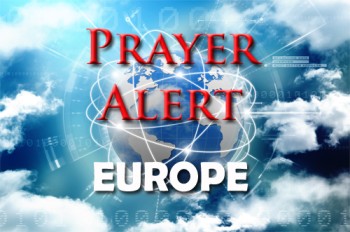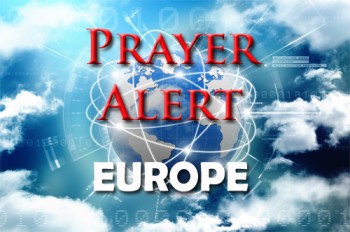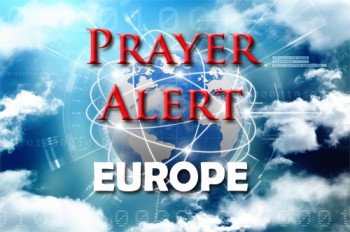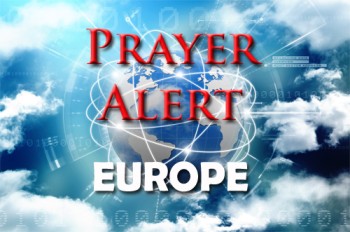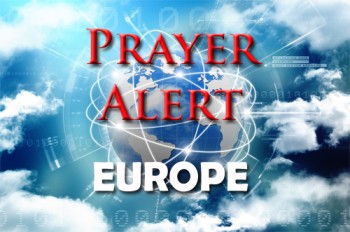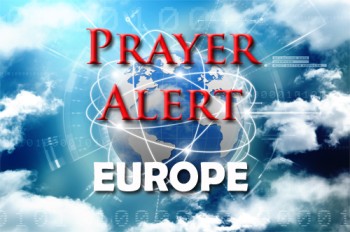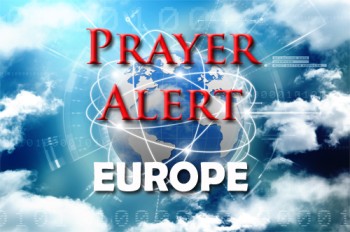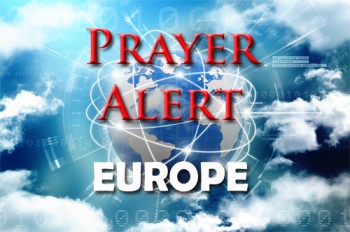Displaying items by tag: Europe
Spain / France: ‘game-changer for women’s health’
A groundbreaking approach to diagnosing endometriosis offers potential to revolutionise research and treatment of the disease. Affecting one in ten women, endometriosis often goes undiagnosed for years. Traditionally, diagnosis involves invasive procedures like laparoscopy. However, scientists in Spain and France have developed a method of analysing blood-derived stem cells (MenSCs) directly from menstrual samples. This preserves the cells' molecular integrity, allowing researchers to study endometriosis more accurately. By using a technique common in cancer diagnosis, researchers achieved an 81% accuracy rate in distinguishing endometriosis patients from healthy individuals. This non-invasive method, developed by endogene.bio and collaborators, could reduce diagnosis time from years to weeks. The study has gained attention from the pharmaceutical industry, as potentially it could transform endometriosis management and patient care. The co-founder of endogene.bio says: ‘This world-first approach to endometriosis research and diagnosis is truly game-changing for women’s health.’
Spain: trauma and anger continue, one year after Valencia floods
In October 2024, devastating floods swept through Spain’s Valencia region, leaving 229 people dead and countless others traumatised. Among the victims were Miguel and Sara, a father and daughter who perished together while trying to save their car from rising waters. For their widow and mother, Toñi García, the pain remains raw – just one example of the human cost behind the natural disaster known as the Dana. One year later, Valencia continues to rebuild both its cities and its spirit. Memorials honour those lost, while reconstruction and new safety protocols aim to prevent a recurrence. Yet grief and trauma linger, especially among children who now fear the rain which once brought destruction, and anger at the handling of the Dana on the day it struck refuses to fade. As towns like Paiporta rise from the ruins, residents are striving for resilience and renewal.
Zelenskyy joins European summit as EU and US ramp up Russia sanctions
Ukrainian President Volodymyr Zelenskyy joined European Union leaders in Brussels as both the EU and the US announced fresh sanctions on Russia for refusing a ceasefire. Arriving at the summit, Zelenskyy reaffirmed that Ukraine will make “no territorial concessions,” rejecting any pressure to surrender land occupied by Russian forces. EU leaders pledged continued unity with Kyiv while discussing a new proposal to use frozen Russian assets in Belgium to fund Ukraine’s defence and postwar reconstruction—though legal and political hurdles remain. The summit also addressed Europe’s wider security strategy, economic competitiveness, and climate commitments, alongside debates on migration and the Middle East. US President Donald Trump supported the tougher sanctions and acknowledged that Vladimir Putin still seeks control over all of Ukraine. Zelenskyy thanked allies for their backing, emphasising that Ukraine’s struggle is not just for national sovereignty but for the defence of freedom across Europe. EU officials said the meeting’s goal was to maintain solidarity and prevent fatigue in supporting Kyiv’s resistance.
Dublin: Three gardaí injured and 23 people arrested in second night of Citywest public disorder
Serious unrest broke out for a second consecutive night near the Citywest Hotel in Dublin, leaving three gardaí hospitalised and 23 people arrested. Around 500 people, mostly young men and teenagers, were involved in violent disturbances outside the hotel, which currently houses asylum seekers. Projectiles including bottles, bricks, and flares were thrown at officers, with one garda struck on the head. Over 300 police were deployed, supported by mounted, dog, and air units, though water cannon use was not required. The violence followed an alleged sexual assault on a 10-year-old girl earlier in the week. Justice Minister Jim O’Callaghan condemned the “thuggish violence” and promised those responsible would be “dealt with relentlessly.” Garda Commissioner Justin Kelly warned of a “robust response” to any further disorder, stressing that the gatherings were not peaceful protests. Taoiseach Micheál Martin praised officers for their bravery, describing the attacks as “vile abuse” against those protecting the community. A senior investigating officer has been appointed to lead inquiries. See
France: Death threats for former President Sarkozy in prison
Former French president Nicolas Sarkozy has received death threats just one day after beginning his five-year prison sentence for criminal conspiracy at La Santé prison in Paris. A video circulated online appeared to show an inmate verbally threatening Sarkozy as he arrived at the facility. Prosecutors have launched an investigation, questioning three prisoners and seizing two mobile phones believed to be linked to the video. In response to security concerns, authorities have assigned two police officers as permanent bodyguards housed in nearby cells, a move that has drawn criticism from prison unions who say they were not informed. Interior minister Laurent Nunez defended the arrangement, saying Sarkozy’s protection was justified “because of his status” and “a clear threat.” Sarkozy, who led France from 2007 to 2012, was convicted of taking illegal campaign funds from Libya, a charge he continues to deny as politically motivated. His lawyers have appealed the ruling and are seeking early release before Christmas.
France: a nun has become a powerful evangelist, thanks to social media
Sister Albertine, a young French nun, has become a surprising yet powerful online evangelist. Through videos, social media posts and candid personal sharing, she invites many - especially younger people - to encounter Jesus. What makes her ministry effective is her authenticity: she speaks of her own struggles, questions and faith journey, and thereby becomes relatable. Her online presence challenges the stereotype of nuns as remote or rigid; instead, she shows a warm, accessible discipleship. By combining tradition with digital outreach, she bridges generational and cultural gaps. Her approach reminds us that God can use unexpected channels to draw hearts, and that faith expressed in vulnerability can reach places formal teaching sometimes cannot.
Spain: a different approach to Africa and to migrants
In contrast to many Western nations, Spain is charting an independent path on migration and relations with Africa. While the USA, UK, France, and Germany are reducing development aid, prime minister Pedro Sánchez is deepening his country’s engagement with Africa through investment, diplomacy, and dialogue. The socialist-led government’s strategy emphasises shared prosperity, education, and sustainable growth, reflecting Madrid’s belief that Europe and Africa ‘form part of the same geopolitical space’. Alongside this vision, Spain continues to experience migration pressures, with 45,000 crossing from Africa to Spain or the Canary Islands in 2024. Yet unlike many European leaders, Sánchez acknowledges migrants’ contributions and backs ‘safe, orderly, and regular’ mobility schemes such as ‘circular migration agreements’ which give West Africans short-term visas to come to Spain for limited periods of seasonal work, mainly in agriculture, and then return. By coupling realism with empathy, Sánchez is seeking to balance security with solidarity, presenting a model of cooperation rooted in dignity, opportunity, and mutual benefit.
Greece: parliament set to approve thirteen-hour workday
Greece is poised to introduce one of Europe’s most controversial labour reforms - a thirteen-hour workday for private-sector employees. The new legislation, expected to pass parliament despite widespread protests, would allow workers in industries such as manufacturing, retail, and hospitality to take on a sixth workday and extended hours, with higher pay for overtime. The government argues that this flexibility will help address labour shortages and support economic growth amid an aging population. However, unions and opposition leaders have condemned the move as a step backward, heightening job insecurity, disrupting work-life balance and legalising overexploitation. One in five Greeks works more than 45 hours a week, the highest rate in the EU, and outdone by only four other countries in the world; low salaries force many to work two jobs to cover the soaring cost of living, in particular high housing costs. Officials insist the extra hours will be voluntary and regulated, but many groups are deeply sceptical.
France: boom in baptisms and Bible sales
An unexpected spiritual revival is unfolding in France, where more than 10,000 adults are set to be baptised in 2025 - a 45% increase in one year. This surge, accompanied by record youth participation in pilgrimages and a marked rise in Bible sales, is reshaping the French Catholic landscape. Journalist Antoine Pasquier has investigated why young people are turning to faith in a secular society still recovering from scandal and decline. His research reveals that Scripture, not social media, plays the central role in conversions, as many seekers first encounter Christ through personal reading of the Bible. Influenced by the visible faith of Muslim peers, many young converts desire to express their beliefs openly and live with greater spiritual depth. Pasquier calls for the French Church to become a ‘catechumenal Church’ - one renewed through evangelisation, personal conversion, and openness to the Holy Spirit.
France: new PM to be named within 48 hours?
Emmanuel Macron is expected to appoint a new prime minister within 48 hours, following the abrupt resignation of Sébastien Lecornu’s government just 14 hours after being named. Lecornu, asked to outline a path forward, concluded that most lawmakers oppose snap elections and that a narrow parliamentary plurality could support a 2026 budget aimed at reducing France’s deficit, projected at 5.4 percent of GDP. Macron now faces the challenge of naming a leader capable of governing without a parliamentary majority - the same obstacle that brought down Lecornu’s predecessors. Choosing a centre-left prime minister from the Socialist Party could help build a coalition but would probably reignite controversy over Macron’s contested pension reform, which raised the retirement age. With political divisions deepening, Macron has yet to comment publicly, while far-right leader Marine Le Pen and her party have said they would vote to topple any new prime minister named before new elections, intensifying France’s ongoing political instability. For an assessment of Macron’s options, see
